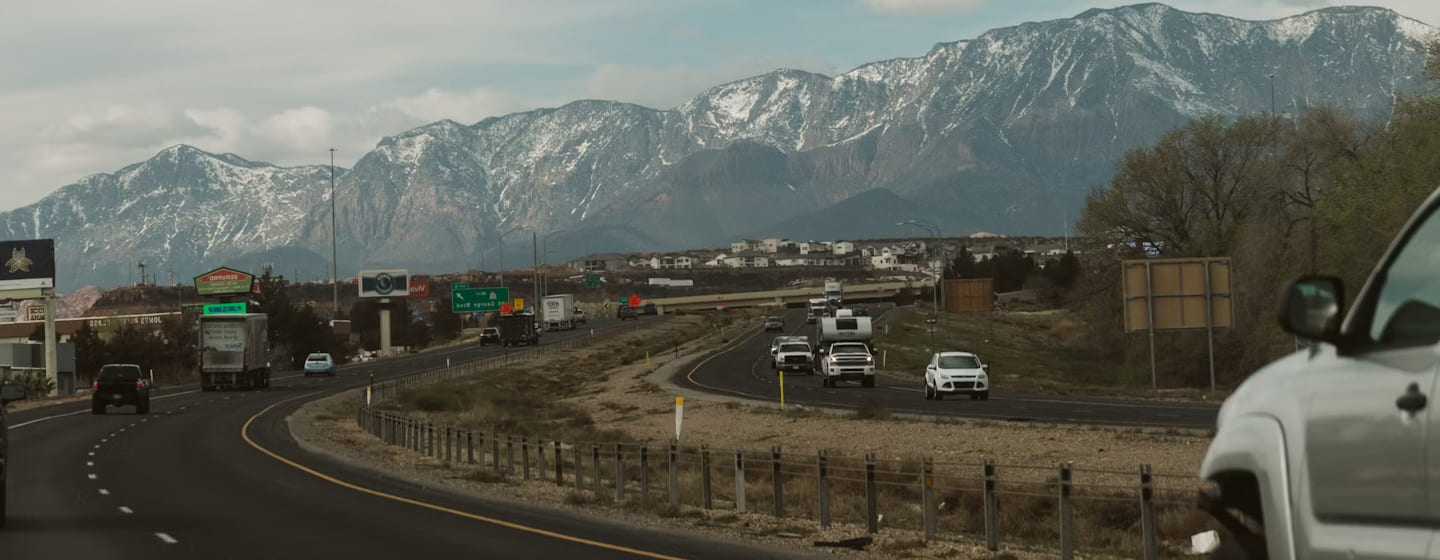Beyond the Beehive: A Deep Dive into Utah’s Unique Dating Scene
I’ve sat across from countless individuals navigating the intricate labyrinth of human connection.
Yet, few topics bring as much fascination, frustration, and fervent discussion into my office as dating in Utah.
It’s a cultural ecosystem unlike any other in America—a place where modern dating trends collide with deeply ingrained traditional values, creating a landscape that can feel both idyllic and impossibly complex.
Clients often begin with a sigh, saying, “You just don’t get it unless you’ve lived it.”
They’re right. To an outsider, it’s just dating.
But to those within it, it’s a high-stakes social dance with its own unwritten rules, specific vocabulary, and immense psychological weight.
Let’s pull back the curtain and explore the psychological currents that shape dating in the Beehive State.

The Weight of Eternity: Navigating the ‘Marriage-or-Bust’ Mindset
The most significant factor shaping Utah’s dating culture is the influence of The Church of Jesus Christ of Latter-day Saints (LDS).
For active members, dating isn’t just a recreational activity. It’s a purposeful search for an eternal companion.
The concept of celestial marriage—a union that lasts beyond death—is a beautiful, core doctrine.
However, from a psychological standpoint, it raises the stakes of dating to an astronomical level.
This creates what I call “celestial pressure.”
Instead of asking, “Do I enjoy spending time with this person?” the internal monologue often becomes, “Is this person worthy of raising my eternal family? Do they check every box for exaltation?”
This turns first dates into interviews and transforms the natural process of getting to know someone into a high-anxiety performance.
The cognitive load is immense. You’re not just evaluating chemistry and compatibility; you’re vetting a soul for eternity.
This pressure to make the “right” choice can lead to decision paralysis, where individuals become so afraid of making the wrong eternal choice that they make no choice at all.
Furthermore, the well-trodden path of “mission, then marriage” creates an accelerated timeline, particularly for those in their early twenties.
A young man returns from his two-year mission at 20 or 21, and the cultural expectation is to find a wife swiftly.
This can lead to rushed relationships or, for those who don’t follow this timeline, a premature sense of being “left behind.”
A 26-year-old single person in New York is seen as being in their prime; in certain Utah circles, they can be made to feel like a forgotten relic.
Decoding the “Utah Hangout”: The Psychology of Ambiguity
One of the most common frustrations I hear about is the infamous “Utah Hangout.”
This is the non-date date, a group activity shrouded in ambiguity.
Is it a date? Are we just friends? Who is interested in whom?
This phenomenon is born from a culture that values politeness and avoids direct confrontation, coupled with a genuine fear of rejection.
Proposing a one-on-one date is a direct statement of interest; it’s vulnerable.
A group hangout, by contrast, is a low-risk, low-investment way to test the waters without ever having to face a clear “no.”
Psychologically, this is a form of approach-avoidance conflict.
Individuals want connection (approach) but are terrified of the potential pain of rejection (avoidance).
The hangout becomes the perfect, albeit frustrating, compromise.
The problem is that prolonged ambiguity is toxic for genuine intimacy.
It breeds anxiety, resentment, and confusion. Without clarity, neither person can truly relax and be themselves, leading to a cycle of second-guessing that stifles the potential for real connection.
Inside the Bubble, Outside the Tribe: The Two Utah Dating Pools
Dating in Utah is a fundamentally different experience depending on whether you are an active member of the LDS faith or not.
It’s not one dating pool; it’s at least two, often running parallel with very little overlap.
For those inside the bubble, the dating pool can feel homogenous. Shared values regarding family, faith, abstinence, and substances are a given.
This can be a tremendous advantage, eliminating major compatibility questions from the start.
However, this same homogeneity can lead to a “checklist mentality.”
The focus can shift from individual personality and emotional connection to external markers of righteousness: Did he serve a mission? Does she have her temple recommend?
This can inadvertently devalue the very things that make a partnership thrive long-term: shared humor, intellectual curiosity, and emotional resonance.
For those outside the tribe—including ex-LDS individuals, members of other faiths, or secular people—the experience is one of navigating a foreign culture.
The dating pool can feel drastically smaller. You may find yourself constantly explaining your own values or being viewed as a “project” to be converted.
There’s a social and linguistic barrier to overcome.
Understanding terms like “ward,” “stake,” or the significance of a three-hour Sunday church block is essential context.
This can be isolating and lead to a feeling that you’re on the outside looking in, unable to access the primary social networks where relationships are forged.

A Psychologist’s Toolkit for Thriving, Not Just Surviving
Navigating this terrain requires intention, self-awareness, and courage.
It’s not about “gaming the system” but about grounding yourself in healthy psychological principles.
Ditch the Checklist for Genuine Connection
Whether your checklist is spiritual or secular, release it. Instead, focus on how you feel with the person.
Do they make you laugh? Do you feel respected and seen? Can you have a difficult conversation with them?
Practice mindfulness on your dates. Be present with the person in front of you, not the idea of them you have in your head.
Become a Master of Direct Communication
In a culture of ambiguity, clarity is a superpower. Learn to use “I” statements to express your intentions and feelings.
It’s okay to say, “I’ve really enjoyed getting to know you, and I’d be interested in seeing where this could go,” or to ask, “I’m a bit confused about where we stand.
Can you help me understand what this is for you?” The infamous “Define The Relationship” (DTR) talk is a crucial tool here.
Yes, it’s scary, but five minutes of uncomfortable honesty is better than five months of anxious uncertainty.
Redefine Your Timeline and Success
Your life is not a race. The cultural pressure to be married by a certain age is just that—cultural pressure.
It is not a moral or psychological imperative. Practice self-compassion.
Your worth is not defined by your marital status. Focus on building a life you love, full of rich friendships, hobbies, and career satisfaction.
A healthy and happy partner will be drawn to a healthy and happy individual, not someone desperately trying to fill a role.
Widen Your Social Aperture
Your future partner might not be in your Sunday school class or the same downtown bar you always visit.
Intentionally break out of your social comfort zone. Join a hiking club, take a pottery class, volunteer for a cause you believe in, attend a concert for a local band.
By engaging in activities you genuinely love, you increase the chances of meeting someone who shares those authentic interests, creating a foundation for connection that transcends cultural scripts.
Ultimately, while the landscape of Utah dating is unique, the core human needs for love, respect, and belonging are universal.
By understanding the underlying psychology at play and arming yourself with tools for self-awareness and direct communication, you can do more than just survive—you can thrive.
Frequently Asked Questions (FAQs)
Absolutely, but it requires intention. The dating pool may feel smaller, but it is far from empty.
Success often comes from being proactive in non-church-centric communities (hobby groups, professional organizations, volunteer opportunities) and being very upfront and confident in your own beliefs and values.
Be prepared to do some cultural translation, but don’t assume a mixed-faith relationship is impossible. Clarity and mutual respect from the very beginning are key.
Think of them as different ecosystems. Mutual is the LDS-specific app, where users share a baseline of religious values.
This streamlines the process for active members but can feel exclusionary for others.
Apps like Bumble, Hinge, and Tinder have a much broader user base in Utah, especially in Salt Lake City and surrounding areas. You will find people from all walks of life—LDS, ex-LDS, and never-LDS.
The key is to be very clear in your profile about who you are and what you’re looking for to attract the right matches.
This is a very real and heavy burden. The psychological approach is two-fold. First, work on strengthening your internal sense of self-worth, separating it from external validation (like marriage).
Remind yourself of your accomplishments, strengths, and the full life you are living. Second, set healthy boundaries with others.
You can lovingly but firmly state, “I appreciate your concern for my happiness, but my dating life is something I prefer to handle privately.
I will let you know when I have news to share.” It’s about teaching others how you expect to be treated while validating your own journey.
DTR stands for “Define The Relationship.” It’s a conversation where two people explicitly discuss the status and future of their relationship.
It’s especially crucial in Utah because of the culture of ambiguity (e.g., the “hangout”). A DTR cuts through the confusion.
It’s the moment you ask: Are we just friends? Are we casually dating? Are we exclusive? Are we heading toward a serious relationship?
Having this talk prevents you from investing months of emotional energy into something that was never destined to go anywhere. It’s a vital tool for clarity and emotional protection.


